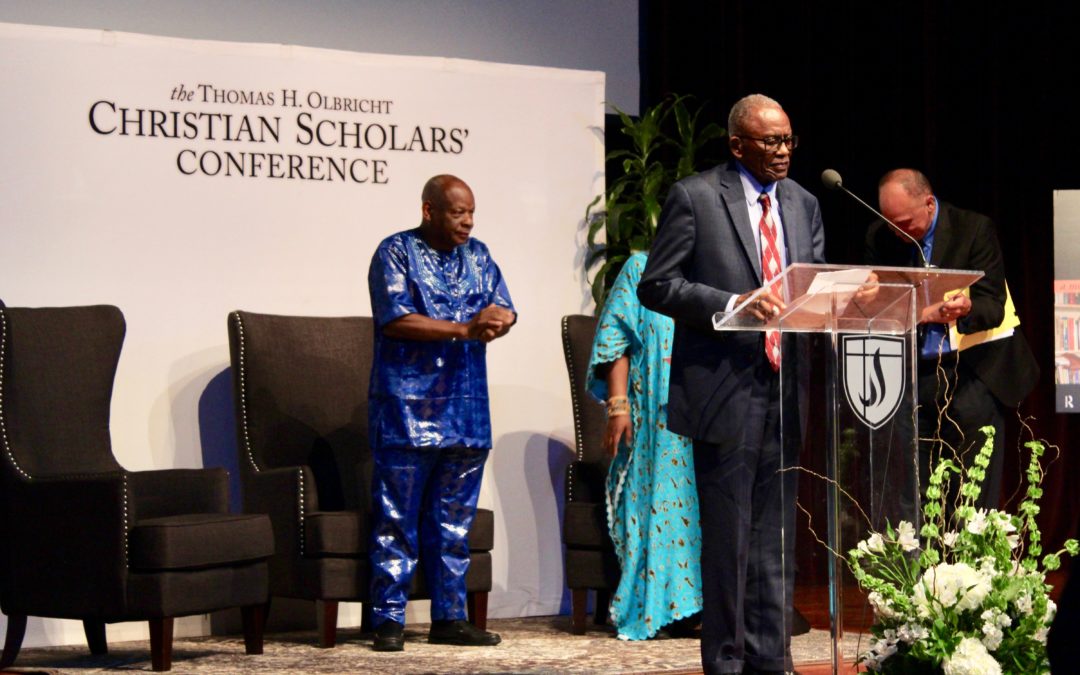Lipscomb hosted the 38th Annual Christian Scholars’ Conference this week, kicking off on Wednesday night with The Fred D. Gray Plenary in Human and Civil Rights and introducing keynote speaker Dr. Molefi Kete Asante.
Lipscomb’s President Randy Lowry gave the opening remarks at the 6th annual conference.
“You can’t be who you need to be if you remain who your are,” Lowry said. “As we engage in these conversations and the stimulations and the challenge that’s here, well, we never could’ve been who we will be had we not shared this experience.”
The lecture honored civil rights attorney, preacher and activist, Fred David Gray who introduced the keynote speaker. Originally from Montgomery, Alabama, Gray attended Nashville Christian Institute and spent time working for professors at David Lipscomb College.
Gray received his law degree from Case Western Reserve University School of Law before returning to Alabama where he worked closely with the Civil Rights Movement and Martin Luther King Jr. As a young attorney in Alabama, Gray also defended Claudette Colvin and Rosa Parks.
“We have been able to assist in changing conditions and bringing about justice for all,” Gray said. “However, the struggle continues. We have not been able to change the hearts and the minds of our brothers and sisters.”
Gray recounted how he later filed a suit in the United States District Court in Nashville against the then-President of David Lipscomb College, challenging the school’s segregation policies. In 2012, at the 32nd Annual Christian Scholars’ Conference, Gray received an Honorary Doctorate of Humane Letters from Lipscomb University.
“Never did I ever think I would be invited back to this campus to do anything, not even janitorial work,” he said. “The Lord does move in mysterious ways with wonders to perform.”
Gray then welcomed Asante to the stage to speak on the discovery of Maat and his journey discovering African Culture. Asante, born Arthur Lee Smith Jr., also attended Nashville Christian Institute and worked closely with the Civil Rights Movement while he was in high school.
Similar to Gray, Asante spoke on the significance of attending the conference hosted at Lipscomb. Asante’s brother was the first African American to receive a degree from Lipscomb University.
Asante works as a professor of African American studies at Temple University and said he chose to embrace a lifestyle that highlights his African culture, specifically in his name and the way he dresses.Asante shared the history of African culture and the significance of the teachings on justice in society today.
“The reason I do it is because I hope to show other possibilities,” Asante said. “Why is it that Christians who are Africans are never recognized for expressing African Culture?”

